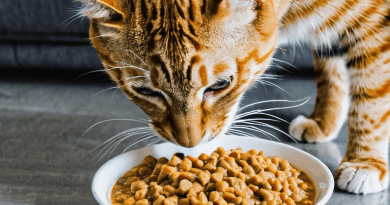Dog Food and Heart Disease: Key Insights for 2023
Hello fellow pet enthusiasts! It's Harry here, a student at veterinary school and an avid pet owner. Given my passion for animal health and nutrition, today I'm going to share some crucial information on a topic that's been buzzing within the pet community: the link between dog food and heart disease, specifically dilated cardiomyopathy (DCM). Let's dive in and understand what this means for our beloved canine friends in 2023.
To set the stage, it's important to discuss the numbers. As of mid-2020, there have been 1,100 dogs reported to the FDA with DCM that could be related to their diet. Fast forward to the end of 2022, and that figure rose by another 282. While these stats might seem alarming, when considered against the approximately 80 million dogs in the United States, the relative risk appears quite low.
The initial FDA report in 2018 brought to light concerns specifically about grain-free dog foods possibly being the culprits behind cases of DCM. However, in their most recent update, the agency has chosen not to name any specific brands. What we do understand about DCM is that it involves the heart muscle becoming thin and dilated, impairing the heart's ability to contract. This can push dogs into heart failure – a situation nobody wants for their pet. Historically, DCM was deemed a genetic issue, often found in certain large breeds. But more recently, a diet connection emerged, especially when DCM appeared in breeds not usually predisposed to the condition.
Research institutions such as Tufts University have been at the forefront of investigating diet-associated DCM. The conclusion is that, yes, diet can influence the onset of DCM, and it's not just about grain-free diets. Grain-based foods might be just as much involved. Certain ingredients have come under suspicion, with pulses topping the list: peas, lentils, and chickpeas. These findings highlight how complex and multifaceted canine nutrition can be.
In contrast, a retrospective study from the University of Missouri found no correlation between grain-free food and the rise in DCM cases. Yet Tufts still sees a connection between specific ingredients and the disease, namely peas. The theory is ingredients high in phytates, which dogs can't properly digest due to a lack of the enzyme phytase, interfere with the absorption of essential nutrients like taurine - a deficiency of which has been linked to DCM.
That said, most dogs that consume diets with these pulses are perfectly healthy. It becomes an issue when such ingredients dominate a dog's diet without variation. My perspective is while peas or lentils aren't inherently bad for dogs, if you're preparing homemade meals, consider varying the vegetables you include. A carrot or some spinach might be better if peas or lentils are the staple of every meal.
After sifting through the research, the likelihood of a dog developing DCM due to diet is still exceptionally low, approximately 0.001315%. If your dog thrives on a current diet, there's no need to panic. However, it’s wise to rotate their food. Variety in nutrition not only safeguards against potential nutrient deficiencies but also introduces your pet to a range of flavors and textures. This is something I practice with my own dog.
Beyond variety, reducing reliance on kibble and incorporating more canned food, homemade meals, or even raw food into your dog’s diet can be beneficial. Continuous studies may reveal further complexities of DCM and dietary links, so it's wise to keep pulses to a minimum, and avoid having them as the principal component of your dog's diet.
As we learn more about DCM and the role of nutrition, I promise to keep you updated on the latest findings. The take-home message is clear: even with the concerns around DCM, balance and variety remain essential pillars of canine nutrition.
To all the pet parents out there, remember that staying informed and proactive in your pet's health can make all the difference. For more posts on how to keep your furry companions happy and healthy, follow our blog, PetsFI.
Thanks so much for joining me on this deep dive into the heart of pet nutrition. Here's to the health and happiness of your four-legged family members!




